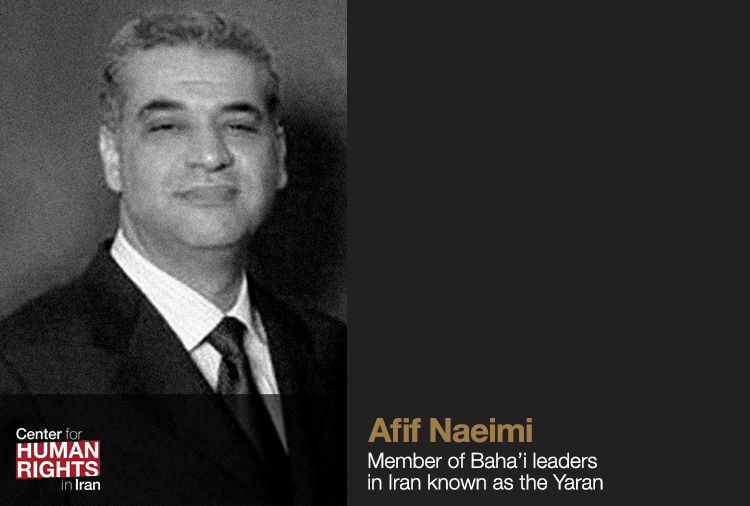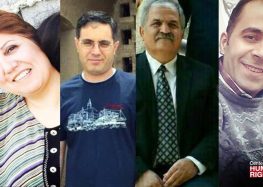Baha’i Leader’s 10-Year Prison Sentence Extended Despite Judicial Ruling That He Is Too Ill to Be Incarcerated

Afif Naeimi, the seventh and last imprisoned member of Baha’i leaders in Iran known as the Yaran, returned to Rajaee Shahr Prison near Tehran on April 23, 2018, at the end of his medical leave despite suffering from life-threatening ailments.
His wife Shahla Khalaji informed the Center for Human Rights in Iran (CHRI) on May 1 that the judiciary’s own medical experts had ruled that the 57-year-old is too ill to be incarcerated.
Naeimi, who has completed his 10-year prison sentence, should have been released by now but the judiciary has extended his term by more than nine months—the period he was out of prison on furlough receiving medical treatment.
“In the past year, my husband came out of prison on two occasions based on a determination by the judiciary’s medical commission that he has illnesses that cannot be cured and need to be controlled with medications under doctor supervision,” Khalaji said.
She added that Naeimi’s heart muscle has dangerously thickened, a condition known as hypertrophy, and he is afflicted with Syncope disease, which causes temporary losses of consciousness.
“We want the time he spent receiving treatment outside the prison to be counted as time served under his sentence,” Khalaji told CHRI.
“There’s a danger that my husband could lose consciousness at any moment and I’m worried that, God forbid, it might happen when he’s in the shower or alone in his cell and he could injure his head and suffer something terrible,” she added.
“While he was out of prison, his illnesses were not treated and his life remains in danger,” said Khalaji. “Therefore, it is our expectation that his time on medical leave will be deducted from his prison term.”
Since September 2017, six other Baha’i faith leaders—Jamaloddin Khanjani, Behrouz Tavakkoli, Saeid Rezaie, Fariba Kamalabadi, Vahid Tizfahm, and Mahvash Sabet—have been freed at the end of their 10-year prison sentences.
Arrested between March and May of 2008, the “Baha’i 7” were each sentenced to 20 years in prison before their sentences were reduced to 10 years imprisonment upon appeal. They were all convicted on several national security charges, including “collaborating with enemy states,” “insulting the sacred” and “propaganda against the state.”
Iran’s Constitution does not recognize the Baha’i faith as an official religion. Although Article 23 states that “no one may be molested or taken to task simply for holding a certain belief,” followers of the faith are denied many basic rights as one of the most severely persecuted religious minorities in the country.
“Mr. Naeimi is the last member of the Yaran who is still in prison, even though his prison term has legally ended,” Padideh Sabety, a spokesperson for the Baha’i International Community (BIC) in London, told CHRI on May 8.
“It is dangerous to keep him in prison because he is suffering from severe heart disease and has lost consciousness in his cell on many occasions,” she added.
“Despite these circumstances, he was returned to prison and in recent days his heart condition has worsened and needs to be under medical watch round-the-clock,” said Sabety.






